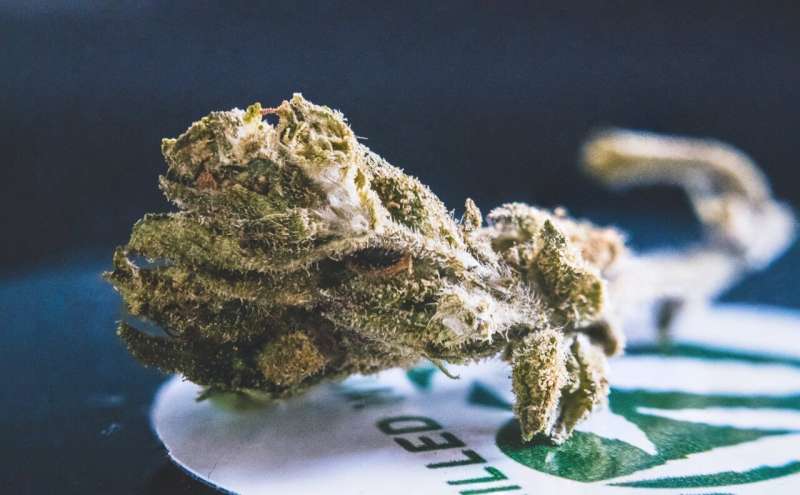Research Finds Young Adults Do Not Adjust Consumption When Using High-Potency Cannabis

A new study finds young adults in the US do not adjust their cannabis consumption based on potency, leading to increased use and higher risk of disorder. Learn more about the implications of high-potency cannabis use.
A recent study published in the journal Addiction highlights that young adults in the United States tend not to 'titrate' their cannabis use according to potency. Instead of using less of stronger strains, they often consume more frequently and in higher amounts. The research, which surveyed over 400 young adults in California, revealed that those who reported using high or very high THC potency cannabis also had increased frequency and quantity in their usage.
Participants rated their typical cannabis products on a THC potency scale from 0 (no THC) to 5 (very high THC). Nearly half of the respondents (195 individuals) regularly used high-potency cannabis flower. The study found that for each increase in THC potency level, participants used cannabis about 3.33 more days per month and an additional 0.13 grams per day.
The survey also included the Cannabis Use Disorder Identification Test—Revised (CUDIT-R), which measures symptoms of problematic cannabis use. Results showed that higher THC potency was associated with higher CUDIT-R scores, averaging 1.21 points more per THC level increase. Participants using high-potency cannabis scored around 11.2, compared to an average of 7.0 among those using low-potency products. A score of 8 or higher may indicate problematic use; scores of 13 or more suggest a possible cannabis use disorder.
Lead researcher Dr. Michael Dunbar from RAND stated that as cannabis markets in the US have shifted toward higher THC concentrations, young adults who seek out these potent products also tend to consume more and exhibit more symptoms related to cannabis use disorder. He emphasized the importance of awareness about cannabis potency and the associated risks.
While the study cannot establish causation, it raises concerns about the potential increased risk of dependence and related issues among young users of high-potency cannabis. As the market continues to evolve, education on the effects and risks of different cannabis strengths is more crucial than ever.
Source: https://medicalxpress.com/news/2025-07-young-adults-high-strength-cannabis.html
Stay Updated with Mia's Feed
Get the latest health & wellness insights delivered straight to your inbox.
Related Articles
Unveiling the Mysteries of Women's Bodies During Labor
Discover the critical gaps in understanding the biomechanics of women's labor and its impact on maternal health and safety. Learn why research in this area is essential for improving childbirth outcomes worldwide.
Understanding the Similarities Between Chemo Brain and the Aging Brain to Improve Cognitive Health
New research uncovers the similarities between chemo brain and aging-related cognitive decline, highlighting potential therapies to enhance brain health and cognition for patients and older adults alike.
Rise in Appendix Cancer Cases Among Younger Adults Highlights Changing Trends
Recent studies reveal a concerning rise in appendix cancer cases among younger adults, driven by lifestyle, environmental, and biological factors. Early awareness and diagnosis are vital for improving outcomes.



